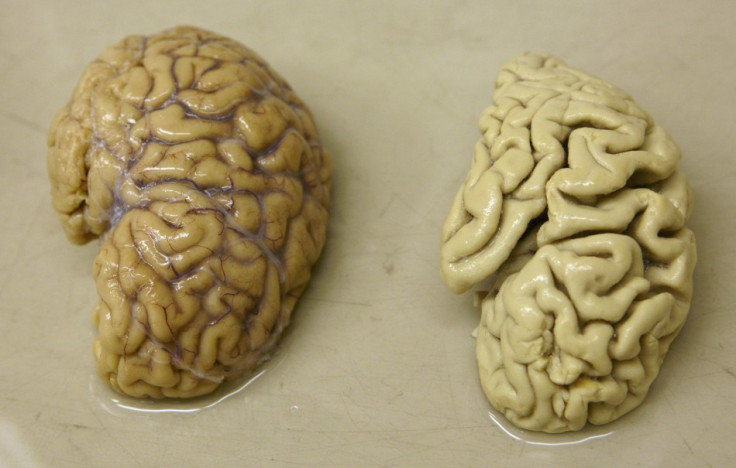Alzheimer's Study: Brain 'Able to Resist Destructive Protein Beta-Amyloid'

Human brains might be able to combat the buildup of beta-amyloid, a destructive protein associated with Alzheimer's disease, a study has found.
According to the paper, published in the journal Nature Neuroscience, some people affected with the disease are able to recruit extra nerve power to help maintain their brain activity.
The study involved 22 healthy young adults and 49 older adults with no signs of mental decline, who were subjected to a brain scan while performing various activities.
Researchers from the University of California used functional magnetic resonance imaging (fMRI) to track the brain activity of subjects in the process of memorising pictures of various scenes.
Participants were then asked to confirm whether a written description of a scene corresponded to a picture previously viewed.
The results showed that people with beta-amyloid deposits - 16 out of 71 - had more brain activity when recalling the images.
"Generally, the groups performed equally well in the tasks, but it turned out that for people with beta-amyloid deposits in the brain, the more detailed and complex their memory, the more brain activity there was," said study's main author Dr William Jagust. "It seems that their brain has found a way to compensate for the presence of the proteins associated with Alzheimer's.
"I think it is very possible that people who spend a lifetime involved in cognitively stimulating activity have brains that are better able to adapt to potential damage."
He added that further studies are needed to understand how the beta-amyloid deposits can be linked to a better mental performance.
Alzheimer's Research UK's Dr Laura Phipps, who did not take part in the study, told the BBC: "This small study suggests that our brains may have ways of resisting early damage from these Alzheimer's proteins but more research is needed ... to confirm whether the extra brain activity seen in this research is a sign of the brain compensating for early damage, and if so, how long the brain might be able to fight this damage."
© Copyright IBTimes 2025. All rights reserved.






















